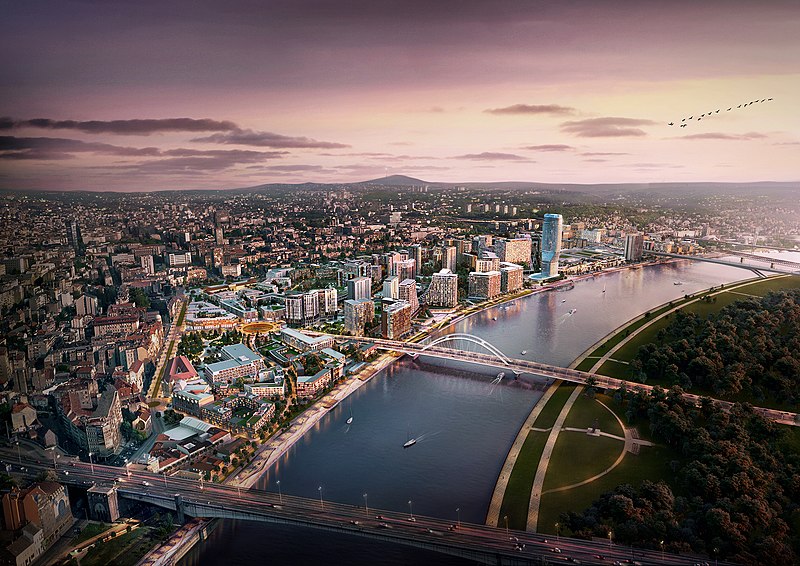Belgrade in 2018 (Wikimedia Commons)
Amid the ongoing Russian invasion of Ukraine, Serbia has secured a Russian gas deal, that will be signed with a Russian FM Lavrov visit in early June. Serbian officials consistently deny that the deal is linked to Serbia’s refusal to impose sanctions on Russia. However, the new deal seems a tell-tale sign of Belgrade’s geopolitical positioning after the May 3 general elections in the country.
The deal
Serbian President Vucic told reporters: “What I can tell you is that we have agreed on the main elements that are very favorable for Serbia. We agreed to sign a three-year contract, which is the first element of the contract that suits the Serbian side very well.”
Officials have indicated that the price of gas currently is three times lower than what other European states pay. And the price for Serbia will be fixed, so this price could be ten to twelve times lower than itss European counterparts during the winter.
Serbia is almost completely reliant on Russia for its energy supply – partly explaining Belgrade’s refusal to impose sanctions. Its energy reliance on Russia could become problematic in the future. The EU could decide to shut off Russian gas supplies and supply lines across various European countries. Finland, Poland and Bulgaria have already been cut off by Moscow, and it is unclear what would happen should this occur in a country on Serbia’s direct supply line.
Geopolitical signs
Serbian officials say that the gas deal cannot be aligned with Serbia’s decision not to join international sanctions. “Everyone who accuses us of not imposing sanctions on Russia because of the gas arrangement should be ashamed of themselves. We are not imposing sanctions on Russia out of principle,” Ana Brabic, Serbia’s PM said.
Above all, the Moscow-Belgrade gas deal indicates that Serbia certainly will not easily follow EU guidelines toward internationally isolating Russia. Vucic’s SNS party has always been staunchly pro-Kremlin, but since the Ukraine invasion, it tries to appease both sides of the international sphere as it had tried to catch as mamy votes as possible during the latests May 3 general elections. This ‘juggling game’ has become increasingly difficult now Russia’s atrocities in Ukraine have become public and pressure to join sanctions on Russia’s isolation intensify.
This has been exemplified by Vucic, who later said that he intends to follow EU sanctions packages in order to remain on track for EU admission. In the light of recent developments, Serbia’s geopolitical stance remains capricious.
Lavrov’s flight ban
Later on June 5, Bulgaria, North Macedonia, and Montenegro decided to close their airspaces for Russian FM Lavrov. He is therefore unable to visit Serbia to seal the gas deal – the meeting is now held with the Belgrade-based Russian ambassador. Vucic reacted highly annoyed to the news, saying that “this small country (Serbia) isn’t allowed to exist. The hysteria showed what they want. They see that they can’t do anything to Russia, and then it gets to the point where they’re taking it out on a small country.”
Sources: VOA News Balkan Insight Radio Free Europe
Photo: Wikimedia Commons



